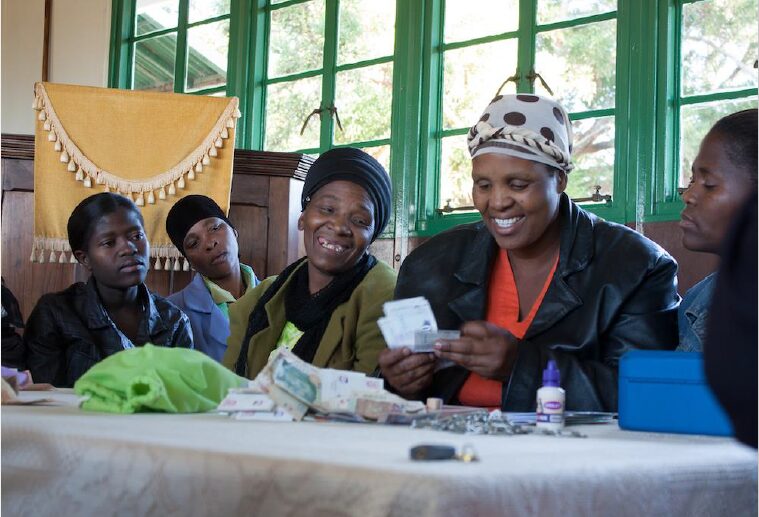
There are very few certainties in a time of a raging global pandemic, but one thing is difficult to dispute. We are constantly bombarded with new and deeply intense emotions.
For just over three weeks, the Khulisa New Initiatives Team based in South Africa introduced a very specific routine to their daily online check-ins: a discussion about how everyone in the team was feeling.
An evaluator’s approach to coming to terms with Covid-19
As evaluators, we were interested to know more about these feelings. Were they mostly positive or mostly negative? What helped us to make sense of our feelings, beat the boredom of being locked down, and stay positive and productive when our new normal was changing by the hour?
What did we talk about when we had to reflect on a day that were characterized by limited possibilities or excitement, and when the tentacles of the coronavirus were creeping closer?
To find answers to these questions, we turned to journaling.
Every day during our check-ins, the new initiatives team shared any positive or negative emotions, sensations, activities or news related to their current circumstances. The intention was to move beyond the usual work updates to help colleagues adjust to working from home and reduce some of the negative feelings by creating a sense that the load was shared, and that the team was not alone.
One person within the team jotted down everyone’s feelings in a journal format, and at the end of the three-week period, using a rough-and-ready content analysis, we themed, color-coded and analyzed the journal transcript to make sense of our evaluators’ inner worlds.
Here is what we found…
We’re a happy, tired bunch that talk about our family a lot
The most notable trend that we observed over the three-week period is that our daily recorded emotions moved from largely negative (coded red) in the first week of the lockdown to largely neutral (orange) or positive (a happy green) towards the end. Overall, we recorded 39 instances of positive affect in our text, and only 30 instances of negative affect. Neutral feelings featured the least.

We started the check-ins two days before President Cyril Ramaphosa’s draconian lockdown measures came into place. It was something none of us has experienced before and the overriding feeling in those two days leading up to the shutdown was sheer panic and uncertainty. Offices, schools, most shops, gyms and entertainment facilities were preparing for complete closure.
On Friday – Day 1 of the lockdown – the mood has shifted to relief (in fact, it’s one of three days on which we recorded the highest positive statements). One of our colleagues used the analogy of packing for a big overseas trip. A calm resided over everyone, almost like finally finding your seat on the plane, and realizing that there was not much you could do now if you forgot anything.
We also recorded positive and negative sleeping and eating patterns, physical sensations and cognition such as concentration and memory.
Were we masking our negative feelings by talking about our struggle with natural biorhythms? Possibly. The team had negative references to eating, sleeping and cognition 21 times, but only 9 positive references. Aside from a few niggles and complaints about feeling cold, the main negative sensation was being tired, or not sleeping well.
Then of course, we frequently talked about the people and animals we loved. Twenty-seven times to be exact, of which they were equally split between positive and negative references (with negative references always around concern for their safety).
Keeping busy – our go-to coping mechanism
We also themed other conversation topics that surfaced during the check-ins. They were the following: references to hobbies and activities at home, referring to Covid-19 news, references to the weather, future plans, jokes and shared experiences, workflow and productivity, and lastly, technical or practical frustrations.

Our conversation chart-topper was the activities that kept us busy – from gardening, to online games, treasure hunts, DIY projects, cooking, online training and reading. We had 24 references to our lockdown projects, followed closely by references to work-related productivity, and an urge to stay busy (20 times).
The second most talked-about topics were the news, and reference to future plans. In the case of talking about the news, it was largely discussed in a positive light: cutting news as a self-care strategy, whereas discussion about future plans had a tinge of loss and uncertainty attached to it, but also an element of hope.
That feeling you’re struggling with? You’re not alone
Like proper therapists, we did dig deeper into our negative feelings and attached specific descriptions to the 30 phrases we themed as ‘negative affect’. They were clustered mostly around feelings of anxiety, with words like ‘worry’, ‘fear’, ‘concern’ and ‘nervous’ echoed in the phrases most frequently.

There were also grief and disbelief, and then a series of descriptive words related to lower mood, such as ‘deflated’, ‘demotivated’, ‘despondent’, ‘isolated’, ‘dread’ and ‘overwhelmed’.
Lastly, there were words around feeling stuck, stifled and frustrated.
Our wild card category was called ‘meaning creation’. This included references to self-improvement, social activism, deeper connections, or just searching for a kernel of hope amidst the global uncertainty. It related to the things we did or wanted to do to help us find a higher purpose in the difficult times.
And here is the most interesting observation: we recorded 11 references to ‘meaning creation’. Nine of those references were during the first phase of the lockdown when the prevailing mood was negative. When we were feeling scared and overwhelmed, our narratives were also rich in examples of caring for others, personal growth and restoring societal imbalances.

This is by no means a generalizable study. It was our fun attempt to understand our feelings a little better.

What we discovered was that it’s part of the human condition to rise to the occasion when times are tough. We introduced ways to share experiences and connect with each other through journaling, we focused on constructive activities by immersing ourselves in hobbies and work, but mostly, we adapted. As the time passed, we became settled in our new routines and felt more empowered. We felt happier, and perhaps a little more resilient as we continue to face an uncertain world every day.



